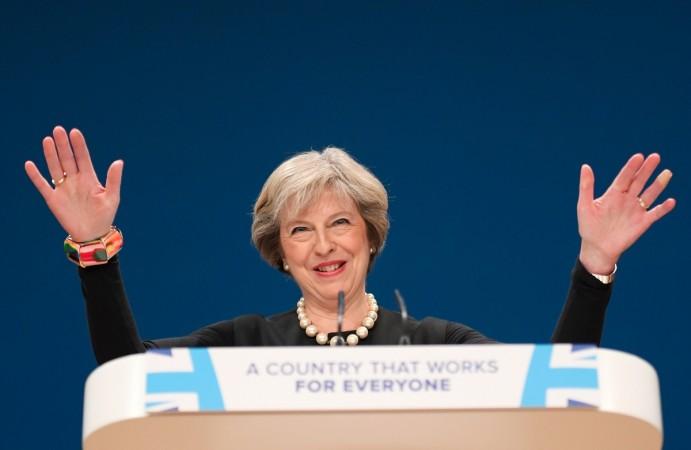
British Prime Minister Theresa May announced on Sunday that the formal talks for Britain's exit from the European Union, also known as Brexit, will begin by the end of March.
Although British citizens had voted for Brexit in a referendum back in June 2016, a clear strategy for the political departure from the 28-nation bloc is yet to be devised. However, PM May's announcement could guarantee Britain's departure from the European Union by the spring of 2019. During her announcement, May set out a detailed timeline for the exit negotiations within a two year deadline, unless all members of the EU decide to delay them.
Speaking in Birmingham, PM May said that Brexit would make Britain a "fully-independent, sovereign country" which will no longer be in the "jurisdiction of the European Court of Justice." She also added that the leaders who are vocally opposing the impending exit are "insulting the intelligence of the British people" and "subverting democracy."
Addressing the Conservative Party's annual convention, May told BBC that Article 50 would be set into motion "before the end of March," before clarifying about the type of ties she would want Britain to maintain with other European nations after Brexit.
May also announced the government's plans to begin the domestic legislative process for Brexit next year by repealing the 1972 European Communities Act which had allowed Britain to join the European Union's predecessor. This would allow the British Parliament to choose which laws from the European legislation to implement domestically.














